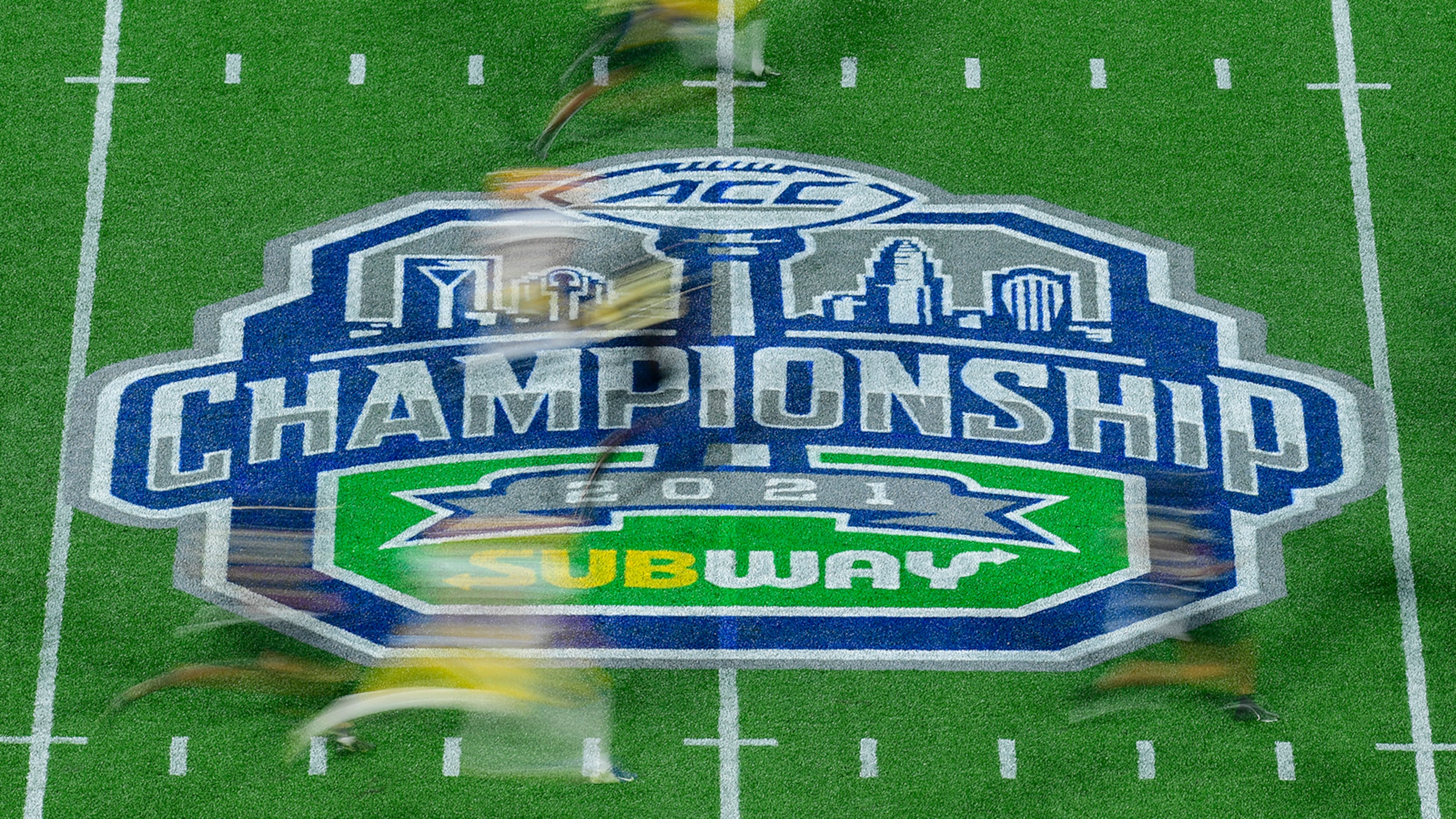3-pointer: ACC’s risky schedule format, UGA’s potential bye, a Falcons bright spot

With two weekends remaining in the regular season, there are no fewer than five ACC teams who have a route to the conference championship game — Georgia Tech, Virginia, SMU, Pitt and Miami.
It makes for an exciting finish. But it also is a perfect example of the colossal nightmare that the conference could encounter when it expands the conference schedule in 2027 from eight games to nine, as the Big Ten, Big 12 and SEC have done or will do.
It’s a potential problem because the math of 17 teams each playing nine games doesn’t work. One team will only play eight games.
At this late point of the season, there are three teams that could finish at 7-1 this year — Virginia, SMU and either Tech or Pitt, which face each other Saturday. If the scenario were to repeat itself in two years, what if one of them had the eight-game schedule and then the other two finished 8-1?
For good measure, let’s say that the team with the 7-1 record and the eight-game schedule was ranked low enough that its only path to the College Football Playoff was by winning the ACC title.
Another realistic possibility is that the team with the eight-game schedule finished 7-1 while two other teams finished 7-2, leaving one of them out of the league championship game. With the 7-1 team not having to risk a second loss in a ninth game, it would be an unbalanced competition.
Having to explain why two Bay Area teams are in a conference with “Atlantic Coast” in its name would be a day at the beach compared with handling either of those crises. (In fairness, it would still probably be preferable, though, to getting sued by two member schools.)
The ACC is presumably counting on the unlikelihood of the team with the eight-team schedule being a factor in the 17-team race and that a nine-game schedule will stratify the competition more than eight games.
Still, the ACC is inviting a tempest and egg on its face.
Could a CFP bye actually hurt Georgia?
In the latest College Football Playoff rankings, Georgia rose to No. 4 to move the Bulldogs closer to earning a bye for the first round of the CFP. It’s even plausible that Georgia could earn that spot without even playing in the SEC championship.
From the perspective that it could give the Bulldogs a significant break before their quarterfinal game on New Year’s Eve or New Year’s Day, that could be a tremendous advantage.
On the other hand, it’s worth remembering that the four teams that earned byes last year in the first season with a 12-team playoff all lost, including Georgia (Boise State, Arizona State and Oregon were the others).
I wrote about this before the Bulldogs’ Sugar Bowl/CFP quarterfinal loss to Notre Dame last year. In the first three games, not only did all three teams with a bye lose, but they also lost in a way that suggested that they were not as ready to play as their opponents.
In those three games, Penn State (vs. Boise State), Texas (vs. Arizona State) and Ohio State (vs. Oregon) outscored their opponents in the first quarter by a combined 42-3 and outgained them 452-195 before the games leveled out.
Georgia coach Kirby Smart had even noted before the game that the time off was “just hard to manage” in terms of keeping players in football shape.
The Sugar Bowl didn’t play out quite the same way — it was a 0-0 tie after the first quarter — but the Irish took control in the second quarter and led 13-3 at halftime before winning 23-10.
All to say, perhaps the extra rest isn’t as advantageous as you might think.
Counterpoints: 1) Small sample size. 2) Boise State and Arizona State were only top-4 seeds because they had won conference championships as opposed to being actually ranked that high, a format that has been adjusted. 3) In the other two quarterfinals, the winning teams (Ohio State and Notre Dame) both reached the championship game, meaning they were probably the two best teams in the field. 4) No coach would ever turn down a bye and extra rest.
But, something to think about.
In Falcons’ misery, a bright spot
The Falcons’ overtime loss to Carolina will be remembered mostly for the wretchedness of the team’s fifth consecutive defeat and what has proved to be quarterback Michael Penix Jr.’s season-ending knee injury.
But not everyone will recall it that way. It was also the NFL debut of rookie cornerback Cobee Bryant, who made the team the hard way — as an undrafted rookie free agent out of Kansas.
Bryant, who was named after the basketball legend, was added to the active roster after cornerback Dee Alford suffered a concussion in the previous game against the Colts.
Bryant handled himself, notably making a forceful tackle on tight end Ja’Tavion Sanders that prevented him from converting a third down. It was on the next play that linebacker Kaden Elliss tracked down Panthers quarterback Bryce Young on fourth-and-1 for a momentum-changing turnover on downs.
Even better for Bryant, who is from Evergreen, Alabama, he had about 12 family members in the Mercedes-Benz Stadium stands.
“It was fun,” Bryant told The Atlanta Journal-Constitution. “First NFL game, so really getting experience in a real game was kind of fun.”
If his play was any indication, it won’t be his last.
You can now get my column sent straight to your inbox. Sign up for my newsletter here: AJC.com/newsletters/Ken-Sugiura-columnist/



